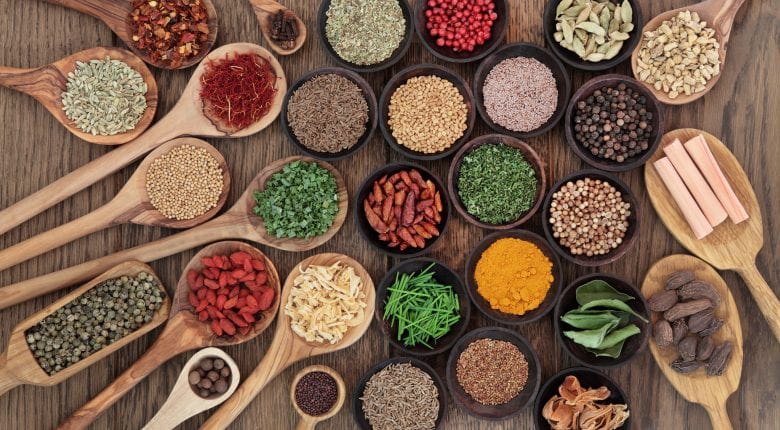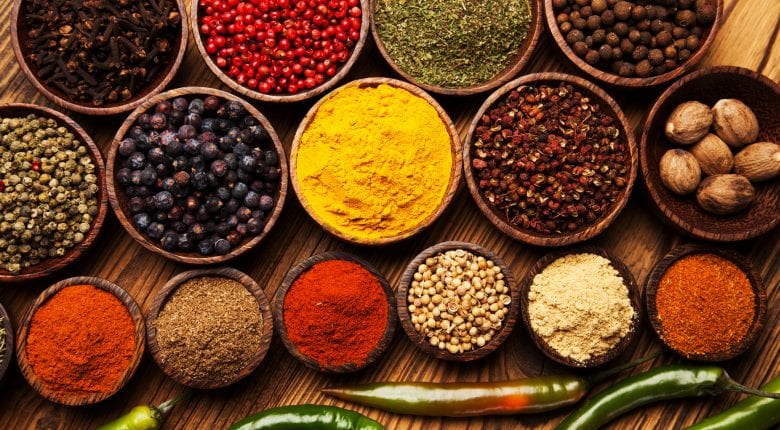Spices and herbs keep fresh for different lengths of time, depending on whether they are fresh, dried or ground. Today’s Liebherr blog post introduces seven simple storage tips to help you get the best out of your favourite seasonings.
Generally, all spices (derived from a plant’s root, flowers, fruits, seeds or bark) and herbs (derived from plant’s herbaceous leaves) are best stored under cool, dry, dark, and airtight conditions. Refrigerators, however, are only suitable for storing certain spices and herbs. Read on to find out more.

Storing spices and herbs: things to remember
1. After buying fresh spices, store them in an airtight, sealable container that is labelled with the spice’s name and use-by-date. Why is this necessary? Well, it’s easy to forget what’s in your container for a start! Also, spices stored in this way can be kept for a long time at room temperature, so you need to be able to keep track of things. Ground spices can be stored for around 3 years before they lose their pungency and aroma, whilst grains, such as coriander and pepper, along with nutmeg and cinnamon sticks, will keep for up to 5 years.
2. Well-sealed, clear glass jars are ideal for storing spices in dark, not-too-warm cupboards – they do not absorb odours, are easy to clean, and are airtight when shut.
3. Do not keep your spices near or directly above the cooker, because cooking fumes will seep into the containers and the spices will clump together or turn mouldy. For the same reason, try to avoid holding spice jars directly over boiling pans when seasoning your food.
4. As we have already alluded to, storing spices and herbs in the fridge is not necessarily ideal – moisture almost always develops causing them to clump or turn mouldy. This said, some spices and herbs really do keep very well in the fridge, notably ginger wrapped in moist paper, lemon grass and chilli peppers.
5. Buy in small quantities to avoid having stocks of unused, spoiled spices that have passed their use-by-date. As much as possible, try to avoid buying ground spices as they rapidly lose their aroma and spoil much more quickly. Spices that have a particularly long-lasting shelf life include: nutmeg, cardamom, coriander seed, caraway, cloves and allspice.
6. On the whole, spices are not usually suitable for freezing because their quality rapidly diminishes. However, spice pastes – e.g. a paste made from oil, onions and spices for goulash – can be frozen without any problem because the oil protects and preserves the aromas.
7. Although herbs store well when dried or frozen, the best thing to do is to keep them as a pot plant on your windowsill (basil, lavender, thyme) or grow them in your garden, so that you can enjoy them freshly harvested. The plants can be kept almost indefinitely and make attractive, fragrant decorations – yet another benefit!

Hopefully, you’ve enjoyed today’s post and, if you have, why not subscribe to our newsletter for regular updates on all our latest refrigeration and freshness news? Or, if you have any questions about what you’ve read, please contact us!